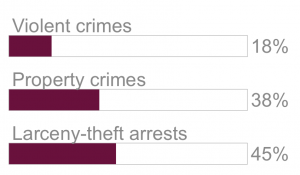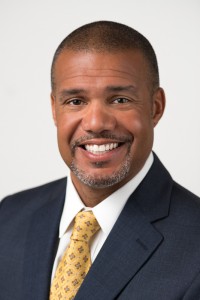Wolverine Human Services (WHS) has operated residential programs for the past 27+ years, but on October 10, 2008 we opened our first non-secure residential program for females. Vassar House was originally established to serve females that experienced substance abuse disorders. We quickly discovered that the demand for gender specific services was rapidly growing in the state of Michigan, so we expanded the range of services to include mental health disorders. The need has continued to grow over the past 7 years, so we expanded once again in September 2013 to serve secure treatment with females at Wolverine Secure Treatment Center.
 Nationally, the trends show there is a significant need for female juvenile offender treatment options. According to the Juvenile Offenders and Victims 2014 National Report, 18% of violent crimes, 38% of property crimes and 45% of juvenile larceny-theft arrests were of the female gender. These numbers are contrary to what many folks believe about delinquency and females. The need is real for female delinquency treatment services, and WHS has established a resourceful alternative for the state of Michigan.
Nationally, the trends show there is a significant need for female juvenile offender treatment options. According to the Juvenile Offenders and Victims 2014 National Report, 18% of violent crimes, 38% of property crimes and 45% of juvenile larceny-theft arrests were of the female gender. These numbers are contrary to what many folks believe about delinquency and females. The need is real for female delinquency treatment services, and WHS has established a resourceful alternative for the state of Michigan.
WHS uses evidence based Cognitive Behavioral Therapy, Motivational Interviewing, Motivational Incentives, Trauma Informed treatment, Integrated Dual Diagnosis Treatment, Psychological and Psychiatric services as needed. The program teaches female adolescents coping skills to regulate intense emotional responses, recovery from traumatic life events, and development of healthy life skills to improve personal, family, and community functioning.
To date we serve 285 youth in residential treatment, of which 33% are female clients. If WHS had not identified the need and provided the service for gender specific treatment, the hundreds of young ladies we have touched over the past 6+ years may have gone without the much-needed help they deserve.
Derrick McCree , MSW is Senior Vice President of Wolverine Human Services. He oversees operations and quality of WHS residential treatment programs, including services to over 600 youth and support of 400 employees each year. He is a Gulf War veteran and professor at Saginaw Valley State University. He is dedicated to helping those in need through evidence-based rehabilitative treatment services, innovative programs, and legislative advocacy. He is most proud of his children and enjoys coaching youth sports.
, MSW is Senior Vice President of Wolverine Human Services. He oversees operations and quality of WHS residential treatment programs, including services to over 600 youth and support of 400 employees each year. He is a Gulf War veteran and professor at Saginaw Valley State University. He is dedicated to helping those in need through evidence-based rehabilitative treatment services, innovative programs, and legislative advocacy. He is most proud of his children and enjoys coaching youth sports.
